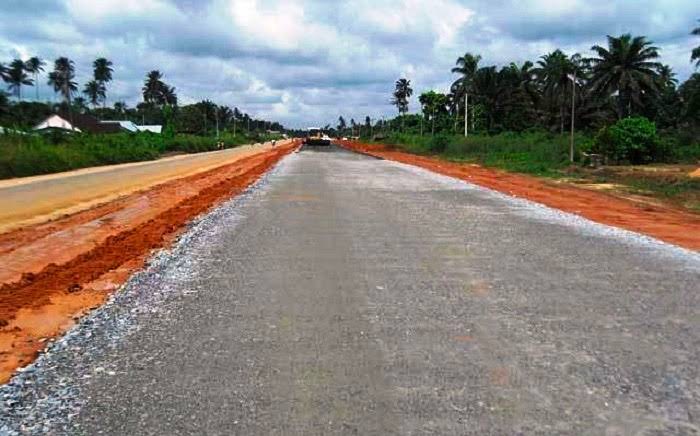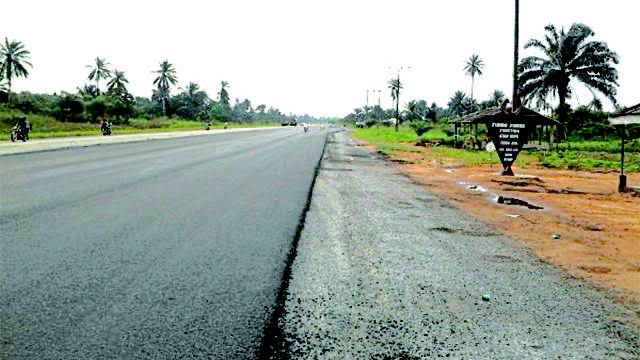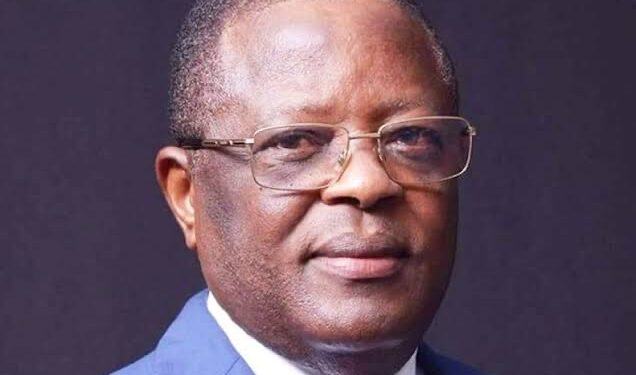The federal government has recently announced significant measures to enhance the East-West road, a critical infrastructure project spanning the South-south region of Nigeria. This development comes amid longstanding challenges and delays that have plagued the road’s completion and functionality.
Minister of Works, David Umahi, emphasized the government’s commitment during his inspection of the project. He highlighted the implementation of reinforced concrete technology as a pivotal strategy to prevent recurrent road failures. This approach aims to address historical issues of pavement instability and infrastructure neglect that have affected the East-West road for years.
Umahi’s visit to the Kaiama-Ahoada section, which spans Rivers and Bayelsa states, underscored ongoing efforts to mitigate flood damage through the construction of multiple box culverts. These culverts are part of broader initiatives to bolster the road’s resilience against natural disasters and ensure safer passage for commuters.

The minister’s remarks followed recent concerns raised by local communities and advocacy groups such as the Movement for the Survival of Ogoni People (MOSOP) and former Niger Delta agitators. These groups have criticized the incomplete state of various road sections, citing safety hazards and economic repercussions due to inadequate infrastructure.
In response to these challenges, Umahi outlined comprehensive redesigns and enhancements across different segments of the East-West road. He emphasized that the new construction methodologies take into account the region’s unique environmental conditions and soil characteristics, which have historically posed challenges to infrastructure stability.
Addressing specific concerns about delays and safety risks, Umahi acknowledged the impact of climate change on flooding in vulnerable areas along the road. Despite these challenges, he commended local contractors for their dedication and noted their pivotal role in implementing emergency repairs and additional infrastructure improvements.
Umahi’s commitment to project completion by December reflects the government’s broader agenda to address nationwide infrastructure deficits. The East-West road, long touted as a crucial artery connecting major economic hubs like the Onne Port and Port Harcourt Refinery, has faced setbacks that the current administration is determined to overcome.

During his inspection, Umahi also assessed Kilometre 15 Section 3A of the road, extending from Eleme Junction to Onne Port Junction. He expressed satisfaction with the quality of ongoing works but urged contractors to expedite efforts in critical sections to ensure timely project delivery.
The minister’s directives underscored a presidential mandate to prioritize the East-West road project, signaling a renewed commitment to improving transportation infrastructure across the country. He emphasized the importance of timely execution and quality assurance in meeting the government’s infrastructure development goals.
Umahi’s visit also highlighted collaborative efforts with agencies like the Niger Delta Development Commission (NDDC) to manage flood risks effectively. This partnership aims to implement sustainable solutions and mitigate environmental impacts while enhancing road safety and longevity.
As the government continues to address inherited project backlogs and infrastructure deficits nationwide, Umahi reiterated the administration’s resolve to deliver tangible improvements in road networks. This commitment is part of a broader strategy to stimulate economic growth, enhance regional connectivity, and ensure safer travel experiences for all road users.
The ongoing enhancements to the East-West road underscore the government’s proactive approach to infrastructure development. By leveraging advanced construction technologies and fostering partnerships with local stakeholders, the administration aims to achieve sustainable progress and meet the evolving needs of Nigeria’s transportation infrastructure.


































